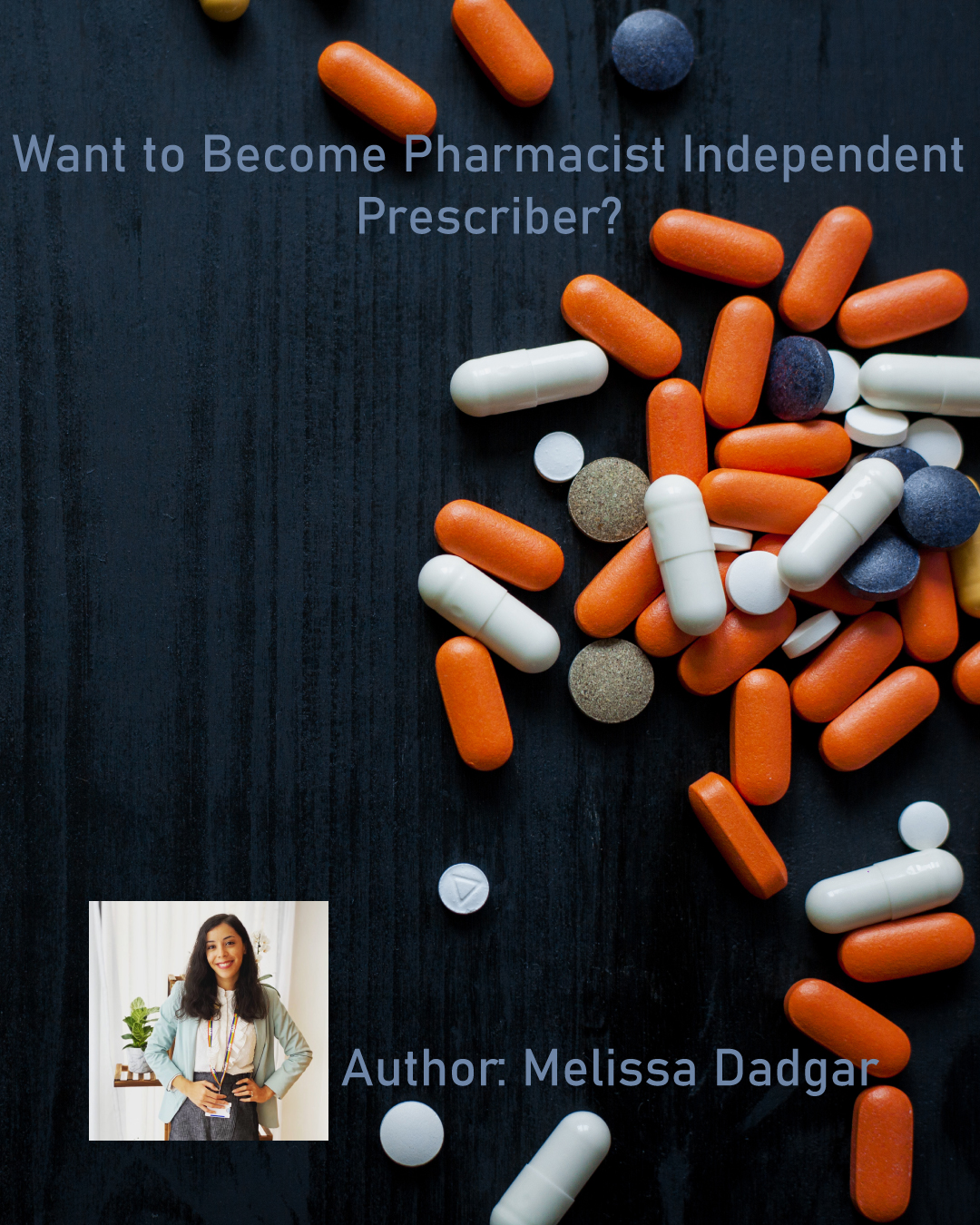Want to Become Pharmacist Independent Prescriber?
26 Sep . 4 min read.

Struggling to figure out if the Independent Prescribing (IP) course is for you?
Struggling to decide if the IP course is for you? Or which IP course to pick?
Struggling to find support/mentors willing to take you under their wing?
Read about Melissa Dadgar's story as she describes her experience of becoming an IP.
The Pharmacist Independent Prescribing (IP) course has been something I’ve been eager to pursue since I qualified as a pharmacist in 2018. This year, in 2020, marks the year where I would be eligible to apply for the IP course, having been qualified and registered for exactly two years. This was something I had been looking forward to for so long; I was finally able to apply!
In April, I decided that’s what I would do: to apply for the pharmacist IP course, and I found a university where I would be happy to study at. With my base being London, I picked UCL School of Pharmacy. Things seemed to be going well, however, it later turned out things weren’t so straight forward in terms of the application process. Aside from managing the course fees and being a registered pharmacist with a minimum of two years’ experience, I found out in order to be eligible to apply, I would need to provide written endorsement from a ‘Designated Medical Practitioner’ (the DMP). This is the same requirement for all universities offering the programme.
The DMP is typically a doctor who supervises the pharmacist in the ‘learning in practice’ element of the course - where the pharmacist spends approximately 90 hours of clinical practice working under the supervision of a doctor. This works out at roughly 12 days which should be spread out regularly over a 6-month period. In these 12 days, the pharmacist observes how a doctor carries out patient consultations, thorough history-taking, any physical examination of the patient, observing their communication skills as well as a treatment plan and advice which would be tailored to the patient. Furthermore, a DMP would provide the pharmacist with feedback and support throughout this course, as well as signing a document which states the pharmacist would be competent to prescribe. This experience is extremely important as patients are complex beings with complex needs – they rarely fit into a textbook answer. This element of the course takes this into consideration by putting the clinical learning into practice, and any real-life hurdles or challenges would be managed promptly.
In order to fulfil this criterion, I began contacting GP surgeries all across London to find a suitable mentor. There is currently no financial incentive for the DMP – so effectively, what we are asking is for doctors to give up their time to help us with our qualification, out of their own goodwill. Knowing this was only 12 days of their time, I did not anticipate just how little, if any, help I would get. I contacted a vast number of surgeries around London, including my local GP practice. As this was proving difficult to secure, I decided to seek additional help from surgeries located further away. I emailed and telephoned surgeries across the country as I was so determined and keen to apply for this qualification. It was deeply disappointing that not a single GP practice was willing to offer their mentorship to me.
A number of surgeries had informed me that things due to the current COVID-19 pandemic, they were unable to offer any training to me. COVID-19 has changed the way many practices operate – with several GPs now offering remote consultations, I was told there would be much fewer training opportunities as a result. I was advised to try again in a few months when things should be running as normal. Eventually, I stopped searching and had taken on board the advice I was given.
5 months passed, now in September, and GP practices are running in the same way as they were from the beginning of the pandemic. I wasn’t too hopeful, however, I decided to contact them again as advised. Again, I had no luck and no mentor. I was in a position where I had no choice but to delay my application. Although I can completely understand these are increasingly challenging times, I couldn’t help but think that it simply doesn’t make sense that this extra qualification should be virtually impossible to achieve. Those 12 days spent alongside a doctor would mean that same GP would have extra free time in just a few months. Upon qualification, I would be giving my knowledge and skills back to the NHS and providing the best standard of patient care.
Shouldn’t this pandemic be more reason to enhance our skills and better our knowledge? Shouldn’t we be incentivised to complete further qualifications in order to provide excellent patient care while freeing up GP time? Shouldn’t more of us healthcare professionals help to work together to improve the system? And isn’t this even more important now, than ever?
The Pharmacist Cooperative is currently developing a national support structure for Pharmacists looking to become IPs, alongside a national DMP/DPP network to improve every Pharmacists’ access and support to mentors.
For any questions relating to IP, whether you’re a prospective IP Pharmacist, a Mentor (DMP/DPP), currently on a course or already an IP Pharmacist, contact us for more information and advice and join the largest peer to peer network in UK for pharmacists on Telegram.